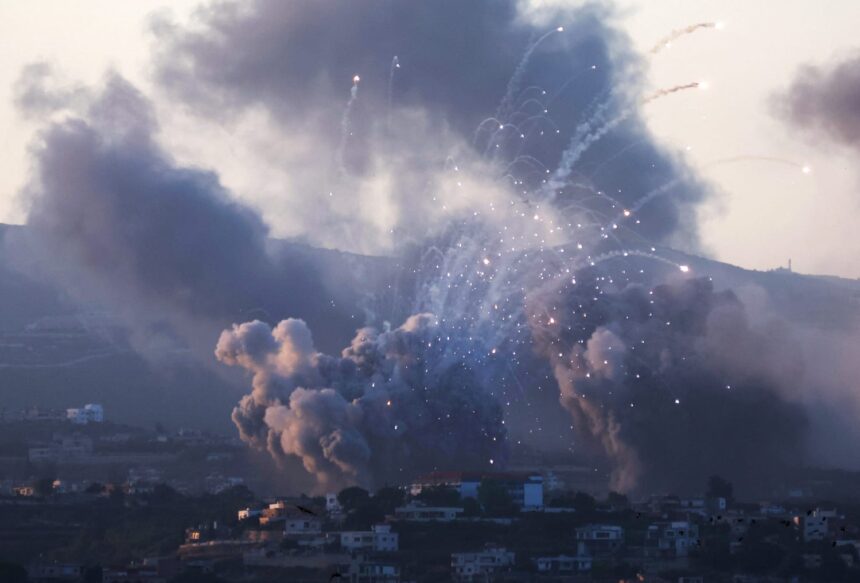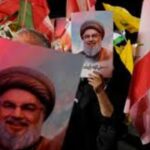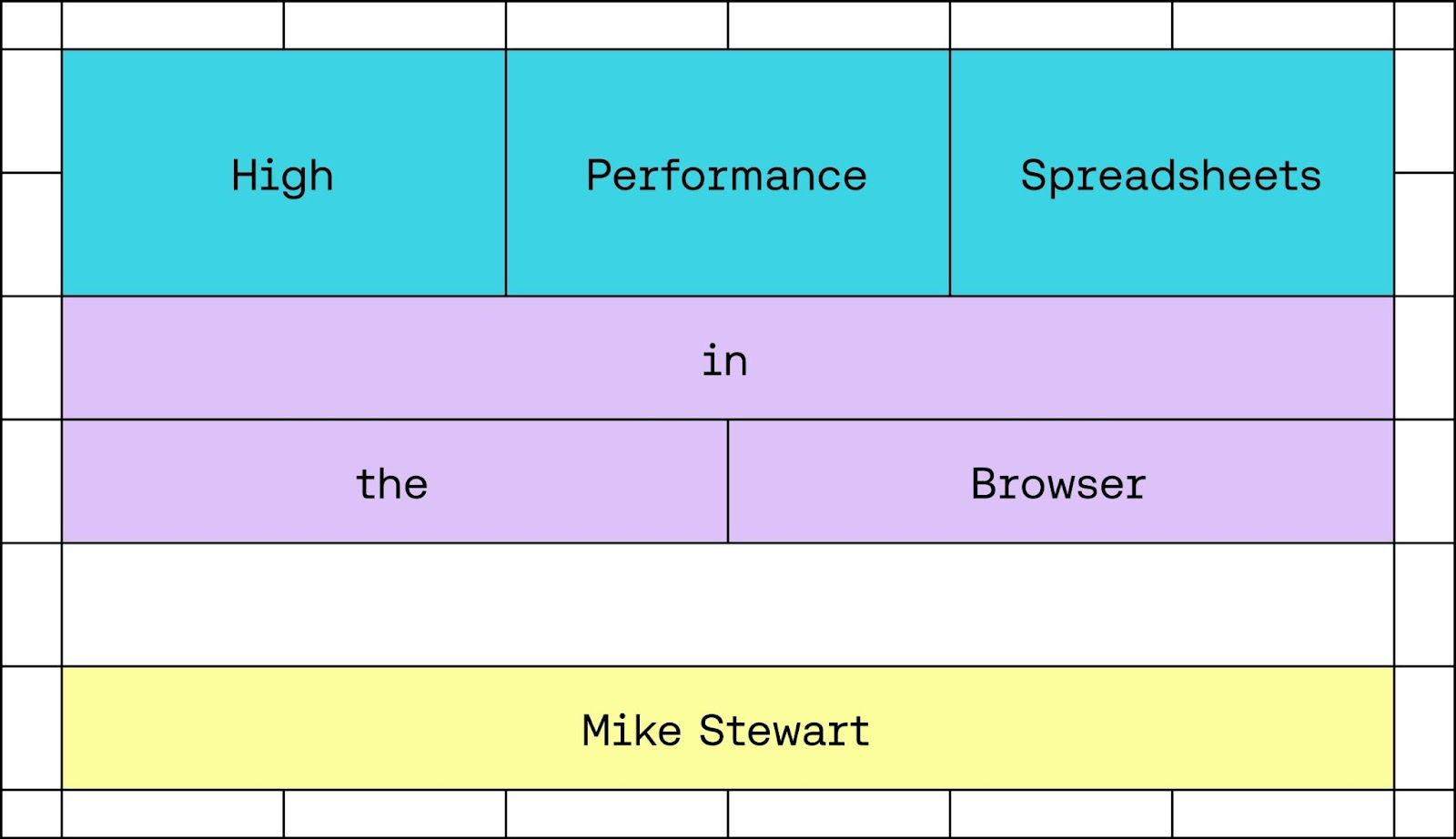The ongoing Israel-Hezbollah conflict has taken a devastating turn, as Israeli airstrikes have hit key Hezbollah strongholds in Beirut, Lebanon, intensifying the already volatile situation in the Middle East. The strikes have led to significant destruction, civilian casualties, and mass displacement, pushing the region closer to a broader war that could pull in multiple neighboring countries. This sharp escalation follows a string of hostilities that started in late 2023 and has seen increasing involvement from regional powers, notably Iran, which supports Hezbollah as part of its “axis of resistance.”
Israeli Airstrikes Target Hezbollah in Beirut:
On October 3, 2024, Israeli forces launched a series of airstrikes on Hezbollah targets in Beirut’s southern suburbs, a stronghold for the militant group. Among the deadliest attacks since the start of this conflict, the strikes reportedly killed at least nine individuals, including civilians, while Hezbollah’s leadership, including senior figure Hashem Safieddine, was the primary target. Safieddine is regarded as a potential successor to Hezbollah leader Hassan Nasrallah and plays a critical role in the group’s operations, making this strike highly significant in Israel’s broader strategy
The airstrikes followed earlier missile exchanges between Hezbollah and Israel, during which Hezbollah fired rockets into northern Israel, prompting Israel to respond with overwhelming force. While Israel’s stated aim is to eliminate Hezbollah’s capacity to wage war and to neutralize its influence along the Israel-Lebanon border, the strikes have caused considerable destruction, displacing thousands of civilians and raising concerns about a humanitarian crisis in the region
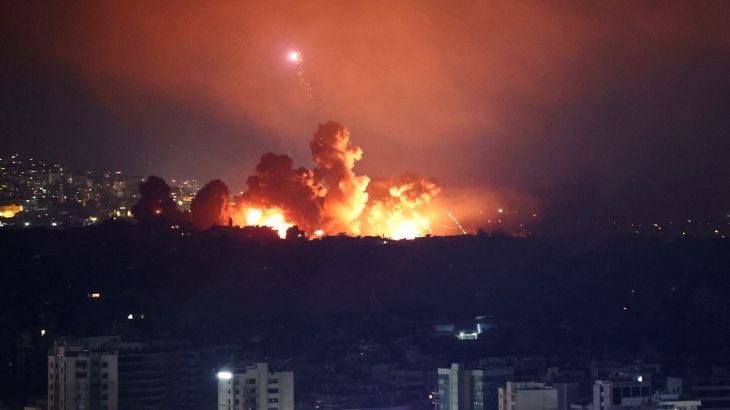
The Role of Iran and the “Axis of Resistance”:
Iran, a key backer of Hezbollah, has played a pivotal role in shaping the conflict. Tehran’s “axis of resistance” strategy aims to counter Israeli and U.S. influence in the region by supporting militias and political movements in Lebanon, Syria, Iraq, and Palestine. Hezbollah, as one of Iran’s most powerful proxies, is central to this axis, and its activities are often coordinated with Iranian interests. This close relationship explains Iran’s sharp reaction to the recent Israeli strikes, with Iranian leaders promising not to back down from their commitment to supporting Hezbollah.
Iranian Supreme Leader Ayatollah Ali Khamenei publicly praised the recent missile barrage launched by Hezbollah against Israel, describing it as “legal and legitimate” in response to Israeli aggression. This rhetoric has fueled fears of a more prolonged and intense conflict, as Iran continues to support Hezbollah militarily and financially, potentially pushing Israel to expand its operations into Syria and Iraq to counter Iranian influence
The Humanitarian Impact on Lebanon:
The Israeli airstrikes have had a profound humanitarian impact on Lebanon, particularly in the capital, Beirut. Southern Beirut, where Hezbollah’s headquarters are located, has borne the brunt of the attacks, with buildings leveled and entire neighborhoods reduced to rubble. Civilians are fleeing these areas in large numbers, seeking refuge from the violence. According to reports, almost 2,000 people have been killed in Lebanon since the conflict began, with many more injured or displacedumanitarian crisis has been exacerbated by the fact that vital infrastructure, including roads and medical facilities, has been damaged or destroyed. Beirut’s airport, located near some of the strikes, has also been affected, raising concerns about the city’s ability to maintain air travel and evacuate civilians. As the conflict drags on, the risk of a full-scale humanitarian disaster looms larger, with aid organizations warning that Lebanon’s capacity to manage the influx of refugees and provide essential services is rapidly deteriorating.
Global Response and Calls for De-escalation:
The international community has reacted with alarm to the escalating violence between Israel and Hezbollah, with calls for de-escalation growing louder. Western leaders, including U.S. President Joe Biden, have urged both sides to exercise restraint, while simultaneously reaffirming Israel’s right to defend itself from Hezbollah’s attacks. President Biden has expressed concerns that the conflict could draw in other regional powers and spark a wider war in the Middle East, an outcome that both Israel and Iran claim to want to avoid, yet their actions suggest otherwise.
In Europe, British Prime Minister Sir Keir Starmer has also called for de-escalation and urged all British nationals in Lebanon to leave the country immediately due to the increasingly dangerous situation. Starmer’s government has already facilitated the evacuation of hundreds of British citizens, with more flights planned as the situation continues to worsen
Despite these calls for calm, there appears to be little appetite for negotiation or a ceasefire on either side. Israel has made it clear that it will continue its military operations until Hezbollah’s capacity to threaten Israeli civilians and military personnel is significantly diminished, while Hezbollah, with Iran’s backing, has vowed to continue its resistance
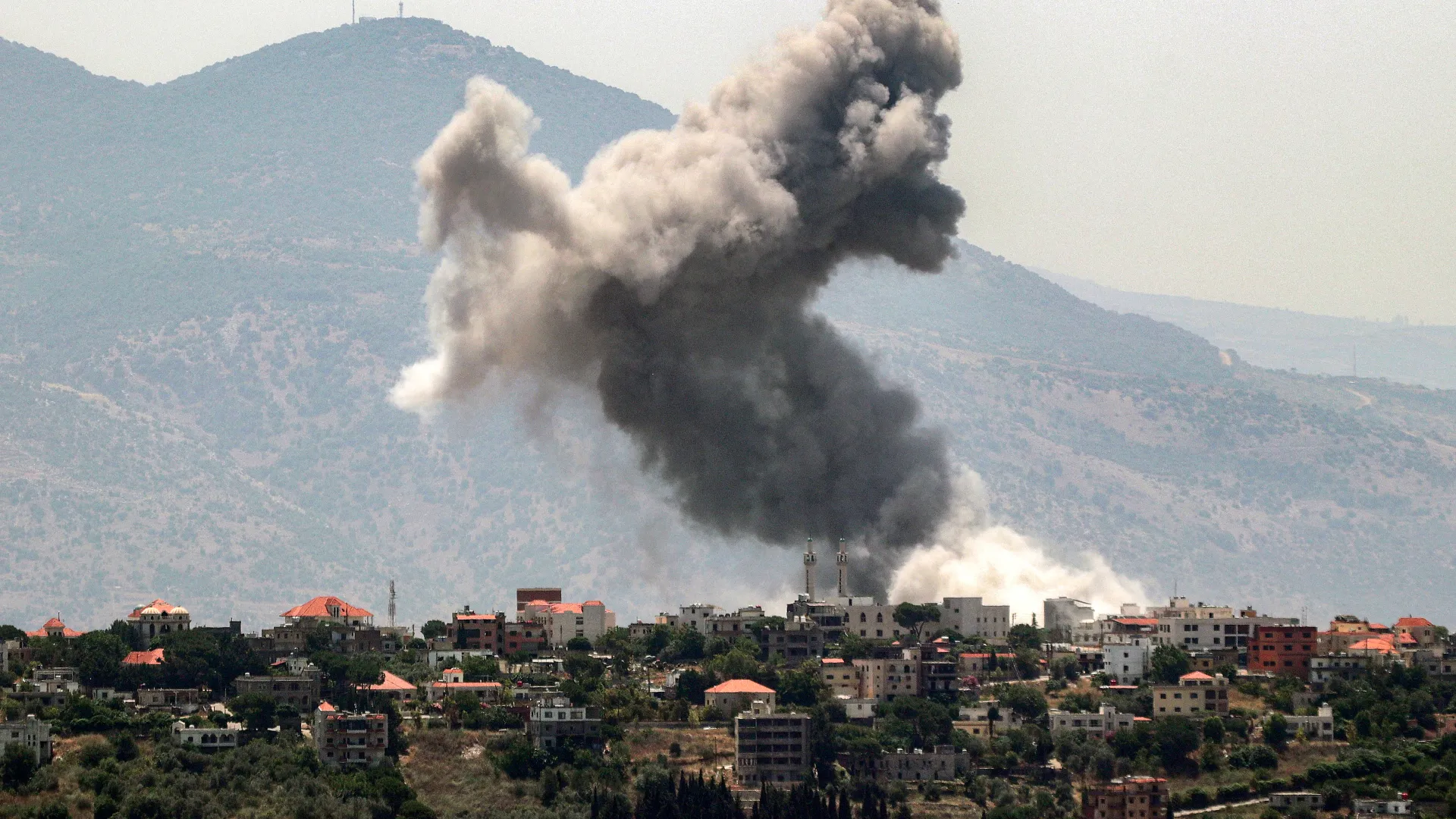
Broader Regional Implications:
The Israel-Hezbollah conflict is occurring within a broader context of regional instability that includes ongoing conflicts in Syria, Iraq, and Gaza. Iran’s involvement in multiple fronts of these conflicts makes the situation particularly volatile, as Israeli leaders have hinted at the possibility of extending military operations beyond Lebanon to counter Iran’s influence across the regionAnalysts warn that if Israel were to strike Iranian assets in Syria or Iraq, it could spark a much wider conflict involving multiple state and non-state actors across the Middle East.
At the same time, Iran is using the conflict to strengthen its regional alliances, with Foreign Minister Abbas Araqchi stating that any ceasefire in Lebanon must be tied to a simultaneous ceasefire in Gaza. This indicates that Iran views the various fronts of conflict as interconnected and is positioning itself as a key player in any future negotiations or de-escalation efforts.
Final Thoughts:
The escalating conflict between Israel and Hezbollah is pushing the Middle East towards a dangerous tipping point, with the potential for a broader regional war growing with each passing day. The involvement of Iran, the extensive damage to Lebanon’s infrastructure, and the high civilian death toll all point to a conflict that is far from over. As international leaders call for restraint and humanitarian organizations struggle to provide aid to those affected, the future remains uncertain.
While both Israel and Hezbollah continue to trade blows, the broader question of what this conflict means for the Middle East remains unanswered. Will it lead to a larger confrontation involving Iran and other regional powers? Or will diplomatic efforts eventually prevail to prevent an all-out war? For now, the Israel-Hezbollah conflict serves as a stark reminder of the fragility of peace in one of the world’s most volatile regions.
For more updates visit website: Reporterun.com


